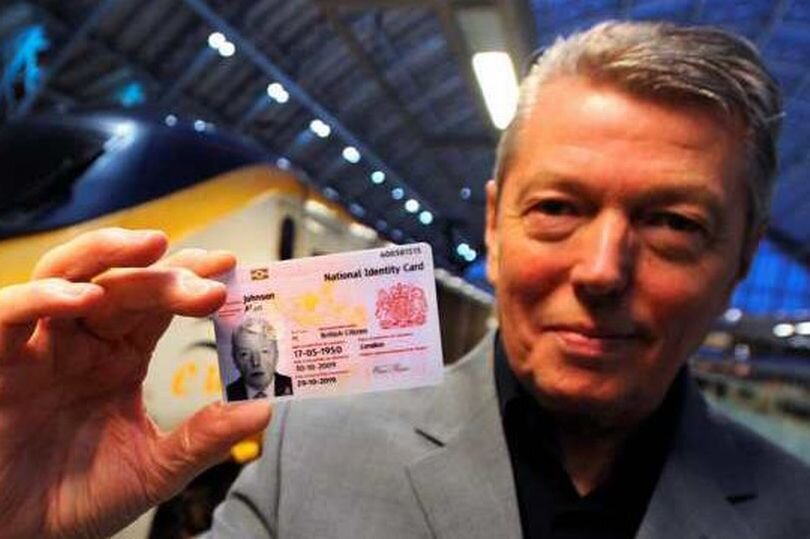Over the years, I’ve become a convert to the idea that the UK government should build the infrastructure to ensure that each person has a digital identity when interacting with the state. As such, I’m cautiously optimistic at this week's news that the government “plans to enable the use of digital identity across the UK”.
I write 'convert' because when Tony Blair’s government tried to introduce ID cards between 2004 and 2010 I was hugely sceptical for reasons of civil liberties. At the time, the policy was principally framed as a fight against terrorism, asylum seekers and benefit fraud, with a National Identity Register holding everyone’s biometric data, including fingerprints, digitised facial scan, and iris scans. In 2005, the London School of Economics produced an expert, highly critical report, The Identity Project, which showed why the government was on the wrong track.
The Identity Project recommended another way. One that wasn’t centralised, and as a result more secure, with data controlled by the user. This federated approach was mainstream thinking prior to the ID cards debacle, and can be seen in developments like Government Gateway, the tScheme for accrediting third parties, and the launch of GOV.UK Verify, which allows you to access government services like filing your tax or checking the information on your driving licence. Jerry Fishenden has written a history of federated identity in the UK for access to online public services since the 1990s, for anyone that wants to get into the nitty gritty of the issue.
Since my conversion, my eulogising has mostly centred around the case of Estonia, which has a very highly developed system of e-government. I wrote back in January on why this self-styled ‘digital state’ shows the way for Whitehall reform and more recently for Forbes on why it has been able to respond better to Coronavirus than many other countries.
But what’s all this got to do with entrepreneurs? In essence, it will save an immense amount of time on bureaucracy. It’s estimated that X-Road – the backbone of Estonia’s digital society – saves around 12 million hours every year. Its once-only principle is a neat way to ensure government departments fall in line, as citizens, institutions, and companies only have to provide information to the authorities and administrations once.
McKinsey estimates that we could add 3 per cent to UK GDP by 2030 if we get the digital reforms right. I'm all for making every man, woman and child richer (on average), but just imagine the satisfaction of being able to tell the government that you don't need to fill in that form because you've already given them that information. In fact, you've given them the same information hundreds times, year after year. That will be priceless.
The value of a digital identity has become particularly acute in the pandemic. As reported in The Times: “Emergency measures in response to coronavirus, such as the self-employment income support scheme, exposed difficulties in identifying people. When the pandemic started the government’s databases had no information on nearly half of the 2.6 million self-employed people who claimed support.” Times subscribers should also read James Hurley on how the virus has left millions of Britons unable to access emergency support. A lot of entrepreneurs haven't been supported through the crisis due to a systemic failure of data, perhaps most notably company directors who paid themselves in dividends.
Despite near-universal misreporting, this isn’t a return to the ID Card and a nationalised database. On this at least, the Prime Minister, who claimed back in 2004 that he would “masticate the [ID] card to the point of illegibility” can’t be fairly accused of hypocrisy. We have been moving, albeit slowly, in this direction for decades. It’s now time to move up a gear.
Non-starter
On Wednesday, the UK Government released details of the Kickstart Scheme, which incentivises businesses to create 6-month work placements for 16-24 year olds in new roles.
It’s very generous. The scheme will: pay 25 hours of young people's wages at National Minimum Wage; cover Employers’ National Insurance and pension contributions for six months; and provide £1,500 to employers for costs and training.
However, it’s being targeted at large businesses, as you need to sign up to the scheme in batches of 30 – ie. take on 30 work placements. This might make sense for the ease of government administration, but given that it’s new, young businesses that create most new jobs, it looks like the Government is missing a trick.
Hopefully they will take heed of the criticism and open it up to smaller companies, but even if they don’t, there is a way round it. You can join a group of other employers, nominating a representative for the group to submit the application, or register your interest with existing representatives, such as local authorities, chambers of commerce or trade bodies.
For example, our friends at Coadec are looking to bring together entrepreneurs who might want to use the scheme, in order to apply together. They will sort the admin and help with the paperwork. Drop Dom Hallas an email to register your interest.
Procure meant be
The Crown Commercial Services is the biggest public procurement organisation in the UK. It helps thousands of public and third sector buyers in the UK with billions of pounds of spending each year, and is supporting the government objective to have a 33% spend of the UK Government supply chain contracted with SMEs by 2022.
It is introducing a number of new processes with the aim of making the bidding process easier, quicker and less burdensome. To help them know what can be improved, they have asked us to share this survey with you. It takes around 30 minutes to fill in.
Sign up to our Newsletter here.

